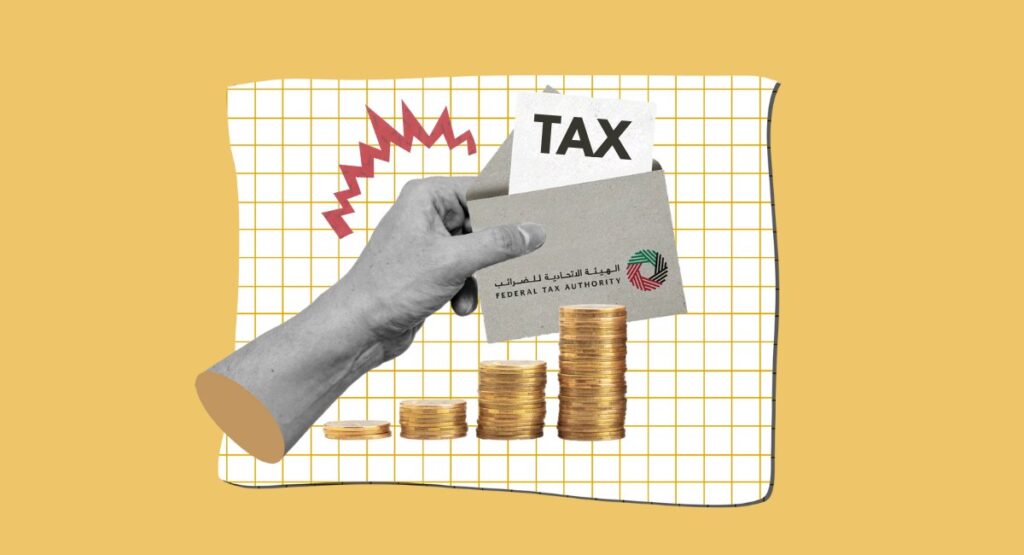UAE Corporate Tax Late Registration: All About FTA’s Penalty Relief

Introduction
The Federal Tax Authority (FTA) of the United Arab Emirates (UAE) has launched a penalty exemption program as a landmark initiative to help the business community and promote tax compliance. This program offers the opportunity to request exemption from penalties for businesses who missed the deadline to register for the corporate tax, provided they act quickly. It shows the UAE’s ongoing effort to simplify changes under the new tax system and endorses accountability and transparency.
Table of Contents
ToggleUnderstanding the UAE Corporate Tax Framework
On June 1, 2023, the United Arab Emirates (UAE) implemented a federal corporate tax at a standard rate of 9% on taxable income that was greater than AED 375,000. Start-ups and smaller enterprises receive a certain degree of flexibility because income that falls below this threshold is exempt from taxation.
In addition to limiting the United Arab Emirates’ reliance on revenue from oil, this well-planned tax reform helps bring the country into compliance with global financial standards. Most businesses must register, including those in free zones, unless officially exempt. It is possible that ignoring this will result in an administrative penalty of 10,000 AED.
FTA Corporate Tax Penalty Waiver: What You Need to Know

To help businesses that missed the registration deadline, the FTA launched an initiative that waives penalties under specific conditions.
Eligibility Criteria for UAE Corporate Tax Late Registration
You may qualify for the exemption if:
- You missed the initial corporate tax registration deadline.
- You submit your first corporate tax return or annual declaration within 7 months from the end of your first tax period.
- You belong to a specific exempt category, but are still required to file an annual declaration.
*For example, your return or statement has to be filed by July 31, 2025 if your financial year ends on December 31, 2024.
Refunds for Previously Paid Penalties

Apply for a refund using the EmaraTax system if your business has paid the AED 10,000 penalty already but meets the exemption requirements. Approval is subject to meeting FTA eligibility conditions and is not guaranteed automatically.
How Can One Benefit from the Initiative?
To fully benefit the exemption program:
- Register for corporate taxes right away on the EmaraTax system
- File your return or declaration during the 7-month grace period.
- Consult a tax professional to guarantee adherence to all filing requirements and documentation standards.
This program allows businesses a second chance to meet requirements free from unnecessary financial burdens.
Who Is Affected and How?

Mainland Companies
Mainland businesses set up in UAE must act quickly to avoid future legal or financial complications. Late registration can disrupt operations and damage your business reputation.
Free Zone Entities
While many business set ups in UAE free zones benefit from tax incentives, they are still required to register. Filing obligations also apply unless your exemption status has been officially confirmed.
Startups and New Ventures
For new businesses, registering for corporate tax should be a foundational compliance step, not an afterthought. Leveraging this initiative helps establish trust and avoid liabilities early on.
Why Professional Support Matters
Dealing with UAE’s changing tax regulations is challenging. Working with qualified tax consultants helps your business to remain compliant and run more tax-efficiently.
Services That Can Help You Stay Compliant
Accounting Services: Ensure accurate monitoring of taxable income and spending.
Corporate tax consultants: Help with strategic, planning, and timely tax filing assistance.
VAT & Tax Advisory: Guarantee comprehensive alignment with all tax laws.
CFO Services: Help you to stay compliant through your financial decisions.
Company Liquidation Advisory: Resolve tax problems first before starting business liquidation.
Business Evaluation: Know how exposed you are under the new regime.
ICV Certification Support: Meet standards for local procurement and bids to support ICV certification.
Conclusion
The FTA’s exemption program offers the crucial chance to start down the right road. Registering and filing within the grace period will help you and your business:
- Avoid fines.
- Keep your compliance record neat.
- Back the UAE’s larger economic vision.
Looking for guidance on managing corporate taxes?
Trust Accounts Management provides complete assistance with regard to corporate tax registration, compliance, and strategic planning. Our professionals will assist you:
- Register via EmaraTax.
- Accurate returns on schedule from your files
- Leverage exemptions where eligible
Contact us now to keep ahead of rules and regulations and safeguard your business.
*Disclaimer: This article is for informational purposes only and does not constitute legal or tax advice. For personalized guidance, consult the Federal Tax Authority or a licensed tax professional.
Sources:
Federal Tax Authority (FTA) Official Website
Ministry of Finance (MoF) Corporate Tax Resources
FAQ
1. What are the penalties for late corporate tax registration in the UAE?
This tax underlines how important it is to follow UAE laws since they are consistent and apply independent of the size of the business or its income. The Federal Tax Authority (FTA) will levy an administrative punishment of AED 10,000 if a business does not promptly register for corporation tax.
2. How can I apply for the FTA’s penalty exemption initiative?
To apply for the exemption initiative:
- Log in to the EmaraTax system.
- Make sure that your company is eligible by ensuring that it meets the requirements.
- You are required to submit either your declaration or your business tax return within seven months of the conclusion of your first tax period.
- If a penalty has already been paid, you can still submit a request for a refund through the same platform.
- This initiative is not only a procedural relief but a strategic opportunity to recalibrate compliance posture.
3. Who is eligible for the UAE corporate tax penalty exemption?
Eligibility hinges on three core factors:
- You missed the initial deadline to register.
- You’re filing your first return/declaration within the 7-month grace window.
- You fall under an exempt category yet are required to file an annual declaration.
*For instance, if your fiscal year ends on December 31, 2024, you must file by July 31, 2025 to qualify.
4. What documents are needed for corporate tax registration in the UAE?
While exact documentation may vary by business type, generally you will need:
- Trade License
- Emirates ID and passport copies of owners/shareholders
- Memorandum of Association (MOA)
- Financial statements (recent and forecasted)
- Proof of business activity
- Contact and location details for the business
It’s advisable to have a tax consultant vet your documents to ensure accuracy and completeness.
5. What happens if I miss the tax registration even after the exemption deadline?
Failing to register even after the exemption grace period exposes your business to:
- Immediate AED 10,000 penalty
- You may become subject to closer FTA review, which could lead to additional penalties.
- Delays in operational permissions or licensing
- Long-term reputational damage in the business ecosystem
In some cases, repeated non-compliance can lead to additional penalties or restrictions on future business dealings.
6. Is there a fee to apply for corporate tax penalty exemption in the UAE?
No, there is no additional application cost for this initiative. But if you work with a tax advisory firm, their professional service costs could apply. Especially if your compliance history is complicated, investing in professional assistance can usually produce reasonably affordable results.
